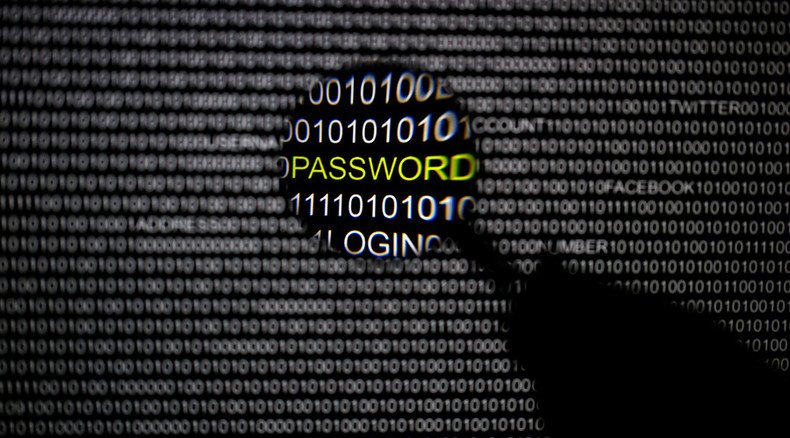Senate moves ahead with CISA, nixes Rand Paul's amendment to make companies liable

A surveillance bill that is the third attempt by lawmakers to institute controversial internet security reforms has cleared a crucial vote in the Senate.
A vote of 83-14 to end debate on a bundle of amendments to the Cybersecurity Information Sharing Act (CISA) went through the Senate on Thursday. The controversial bill would provide incentives for companies to share user data with the federal government.
Senate advances #CISA surveillance bill, 83-14. Call your senators now or this becomes law: https://t.co/DYjUypA3Gv#StopCISA#Election2016
— Michele (@MicheleInL_A) October 22, 2015Thursday’s vote was the first serious step toward the passage of CISA, but the long-stalled bill faces more debates and procedural votes in the future.
READ MORE: ‘No customer oversight’: Dreaded cybersecurity bill CISA is back
Senate also nixed the amendment suggested by libertarian-leaning Senator and presidential candidate Rand Paul (R-Kentucky), whose campaign website says that the bill “would transform websites into government spies.” The measure only got 32 votes, short of the simple majority it needed to pass.
The Kentucky senator suggested an amendment to strip companies of the immunity from liability for breaking privacy agreements with their customers.
YourAnonNews: Today! Stop CISA protest on 1st NE & E. Capitol in D.C. Take a stand to stop surveillance & irrespon… pic.twitter.com/fHVANI5Y5P
— Anonymous (@CovertAnonymous) October 22, 2015One of the amendments that the Senate agreed end debate on and allow is meant to assuage fears by restricting the type of data that companies can share, and set up a system to remove personal data that the government accidentally receives under the measure.
It was co-sponsored by Senators Richard Burr (R-North Carolina) and Dianne Feinstein (D-Calif) trying to mitigate some of the privacy and surveillance fears that have kept CISA off the Senate floor for so long, and it’s expected to be adopted by the Senate.
"We have been at this for six years," said Feinstein just before the vote, according to The Hill. "This is the third bill. We have been bipartisan."
READ MORE: CISA threat: How cybersecurity may harm Americans privacy and hit whistleblowers
While some groups purport that CISA is needed to stop hackers, major major tech firms – like Apple, Google and Dropbox – have joined Senator Paul in calling the bill a major threat to internet freedom that won’t even make the internet more secure.
"We don't support the current CISA proposal," Apple said in a Tuesday statement. "The trust of our customers means everything to us and we don't believe security should come at the expense of their privacy."
Dropbox said that the bill needed more privacy protections in order to win its support.
"While it’s important for the public and private sector to share relevant data about emerging threats, that type of collaboration should not come at the expense of users’ privacy" said Amber Cottle, head of Dropbox global public policy and government affairs, according to the Washington Post.
Other major internet players, like Wikimedia foundation – which runs Wikipedia – and Yelp have come out against the surveillance bill.
Congress is trying to pass a "cyber security" bill that threatens your privacy. Join us & others to oppose: http://t.co/WtpEoS4ESS
— Yelp (@Yelp) October 19, 2015A group of demonstrators also gathered outside of Congress Thursday night in order to protest the bill's advancement. Organized by groups like Fight for the Future and Code Pink, the event was meant to push lawmakers to oppose CISA.
BREAKING: Protesters gathering outside Congress to oppose #CISA. Retweet f you support them! https://t.co/9Yip2l0bDepic.twitter.com/I9mKHVqeKi
— Fight for the Future (@fightfortheftr) October 22, 2015The bill is a "dirty surveillance deal between the government and corporations that takes away our basic rights, makes us less safe, and puts corporations out of reach of the law," organizers wrote on the event's Facebook page.
Hey Congress, can you hear us now? @accessnow#cisapic.twitter.com/Vdy7vHWs9T
— Nathan (@NathanielDWhite) October 22, 2015Senator Ron Wyden (D-Oregon), a major critic of the bill, said that the overwhelming number of tech companies aligned against the bill shows the bill does not respect the privacy of Americans.
"Sharing information about cybersecurity threats is a worthy goal," said Wyden, according to The Washington Post. "Yet if you share more information without strong privacy protections, millions of Americans will say, 'That is not a cybersecurity bill. It is a surveillance bill.'"
Despite the massive amount of opposition from industry leaders and privacy advoactes, CISA has broad bipartisan support in both chambers of Congress and from the Obama administration.












